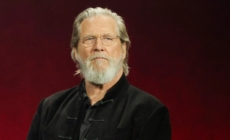-
Jeff Bridges Wants to Return to Most Beloved Role - 22 mins ago
-
Trump’s Tariff Threats Chill Italy’s Cheese Makers - 43 mins ago
-
Tomato Price Warning Issued Over Trump Tariffs - 57 mins ago
-
Can Trump Really Negotiate Peace in Ukraine, Russians Wonder - about 1 hour ago
-
How to Watch Everton FC vs. Manchester City: Live Stream Premier League, TV Channel - 2 hours ago
-
Anti-Trump Protest Organizers Raise Alarm Over Possible ‘Military Force’ - 2 hours ago
-
What Is Lost When We Scare Away Foreign Students - 2 hours ago
-
Millennial Woman Slams Comparisons of 2008 Recession Survival to Now - 3 hours ago
-
Israeli Attacks Kill Dozens in Gaza, Health Ministry Says - 3 hours ago
-
Commentary: In their golden years, this isn’t the country they expected to be living in. So what now? - 3 hours ago
The Pink Cadillac Dream: How Mary Kay Built a Culture of Recognition
Breaking the baby news to family can feel like a celebration worthy of fanfare and fireworks. But for many working moms, telling their boss that they’re expecting often feels less like relishing a personal headline and more like entering negotiations for their professional future. Nearly 50 years after the Pregnancy Discrimination Act was signed into law, many women today still worry that sharing the news with their employers could result in being passed up for important projects or worse, being laid off.
Melinda Foster Sellers, the chief people officer at Mary Kay, chuckled at the thought of those concerns whizzing around the Texas-based cosmetics company. Foster Sellers, who joined Mary Kay in 1993, was promoted both times that she was pregnant.
“I joke that I should have just kept having children,” she said, smiling during an interview with Newsweek.
“Being pregnant here and having babies here, it’s just part of doing business,” she said. “We have more baby showers in this building than you can possibly imagine. It’s so funny and so true. It’ll be like, ‘Hey, I’ve got a baby boom on that floor.’ It’s just the way it is. People pitch in and help cover when that person’s out. It’s just life.”
In 1963, a decade and a half before pregnancy discrimination was prohibited in America, Mary Kay Ash founded Mary Kay Cosmetics, basing the business on her vision of gender equality in the workplace.
“She was this really brilliant saleswoman. She was a single parent, raising three kids and supporting her children through direct sales for most of her career,” Foster Sellers said. “She was frustrated that the men she trained kept getting promoted above her. She didn’t want what happened to her to happen to other women. That’s really why she started the company.”

Newsweek illustration/ Getty Images/ Mary Kay
In under 15 years, the company grew its sales from less than $200,000 at the end of its first year to $50 million by 1977. Today, Mary Kay operates in over 35 countries.
“Mary Kay provided a job opportunity when there were few options for women, other than to be a teacher, a nurse or a secretary,” Cassandra Yacovazzi, an associate history professor at the University of South Florida, told Newsweek.
By removing barriers to promotion for women and by implying that women are an asset, rather than a liability, to businesses, “Mary Kay changed the way many women thought about their place in the workforce,” she said.
“They didn’t have to be segregated,” Yacovazzi explained. “They didn’t have to work as a placeholder for men. And they didn’t have to punished for having a family.”
Foster Sellers added: “From an employee standpoint, there’s never been a glass ceiling at Mary Kay.”
Mary Kay was among the 1,000 standout organizations in Newsweek‘s ranking of America’s Greatest Workplaces for Women 2025, which recognizes supportive workplace policies with an active commitment to diversity and inclusion. This is the third consecutive year that the company has won the award. Mary Kay’s 2025 ranking climbed back up to 5 stars from the 4.5 stars it received last year. It was one of four cosmetic brands to make the list and the only direct-sales company on America’s Greatest Workplaces for Women 2025.
“Many of the things that other companies might take for granted, we actually sort of ushered from the very beginning,” Foster Sellers said, highlighting that Mary Kay was one of the first employers to give workers time off for doctor’s appointments, in addition to personal leave.
“Because we’re such a woman-centric company—more than half of our executives are female, and we’ve have raised children—we have that appreciation for people have to balance a multitude of things,” she said, adding that the company recognizes, “You’re not just the person that you are when you’re at the office. You have a life outside of Mary Kay as well.”
Although sales is a pretty evenly-divided industry when it comes to gender, a report from the Bureau of Labor Statistics found that in 2023, there were more men in the occupation with 51 percent to 49 percent women. But at Mary Kay, women account for 63 percent of the global workforce, and in the company’s top 10 markets, women hold 57 percent of leadership positions.
Women also make up 63 percent of Mary Kay’s research and development team, and they account for 60 percent of the executive team. Foster Sellers, who has 32 Mary Kay years under her belt, is still far from the most tenured person at the company.
There’s an ongoing joke among employees that if you last two years at Mary Kay, you’ll probably stay for at least eight more. About half of the company’s employees have been with Mary Kay for more than 10 years, Foster Sellers told Newsweek.
“A lot of that is because people come in and they may attend a sales force event or work with the sales force in some way, and they hear the very powerful stories of a sales force member getting up and talking about their life,” she said. “They might have been in an abusive relationship, they might have been in very bad circumstances, but because of Mary Kay and the work of Mary Kay, they’ve put their kids through college, they’ve turned their life around, they’ve gotten out of bad situations.”
Hearing those stories makes Mary Kay’s employees more committed to supporting their sales force.
“The fact that we get to come to work and help other women be empowered through this business opportunity that we have, I think it’s just this full circle moment,” Margaret Adkins, an assistant manager for Mary Kay’s integrated marketing, told Newsweek.
It’s not just Adkins who feels this way.
“A lot of women have shared with me that they have found a family in [Mary Kay],” Yacovazzi, who is also currently writing a book about the company, said. “More than one woman told me that when her spouse passed away, it was her Mary Kay team that rallied around her, flying in for the funeral, bringing meals, just being there. I think this comes from the culture of [Mary Kay] that emphasizes caring and sisterhood.”
Foster Sellers described the company as having a “family atmosphere” where employees not only recognize what their colleagues are going through in their personal lives, but are also an “extended family” for one another.
At the same time, Yacovazzi recognized that the direct sales structure can be a “double-edged sword.” She said that while it creates a welcoming and inclusive workplace for women of all backgrounds, it can also be an intimidating one because of the recruiting nature of the business—one that put a lot of pressure on its employees.
That stress is why the culture of recognition is one of Mary Kay’s core values, Foster Sellers said. Over the years, the company has introduced several programs to recognize the accomplishments of its employees, including the iconic pink Cadillacs that top-selling consultants earn—a symbol that represents not only success within the company but has come to signify female entrepreneurship around the world.
Mary Kay’s mission to recognize its people is a product of Ash herself. It’s what Foster Sellers remembers most about meeting the Mary Kay founder in the 1990s.
At the time, Foster Sellers was working in an entry-level human resources position at the company. She recalled Ash taking her hands and looking her in the eye before telling her, “You’re going to go through new employee orientations soon, and I want you to come back to me afterwards and tell me what you thought of it, what we could do different, how could we better bring people into the company.”
“She felt so strongly about opportunities for women and recognition and how people should be treated,” Foster Sellers said. “Even though she was the chairman and founder of the company, she would take the time with any employee, any sales force member, and when she talked to you, you felt like you were the only person in the world.”
“You can change the what of how you do things, but you shouldn’t change the how,” Foster Sellers said. “The basis our mission—enriching women’s lives—that should never change.”
Source link





















